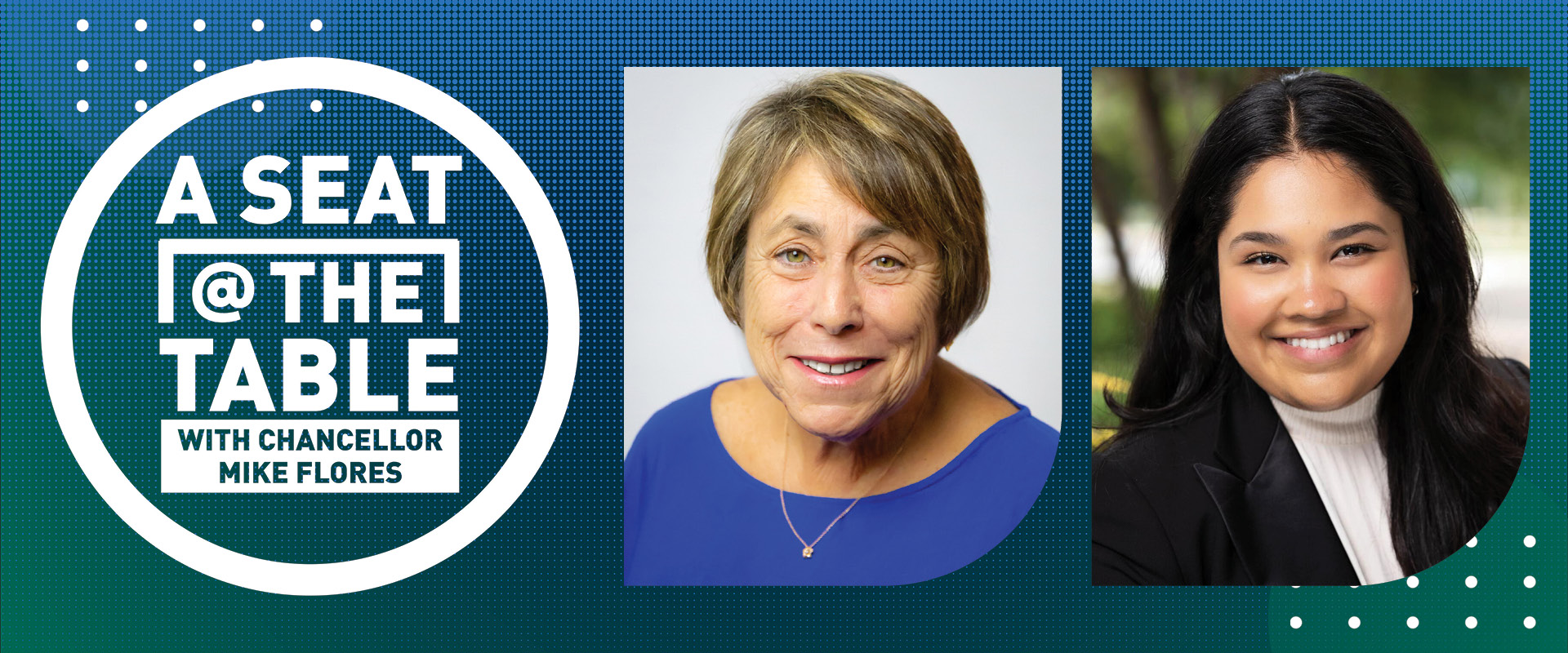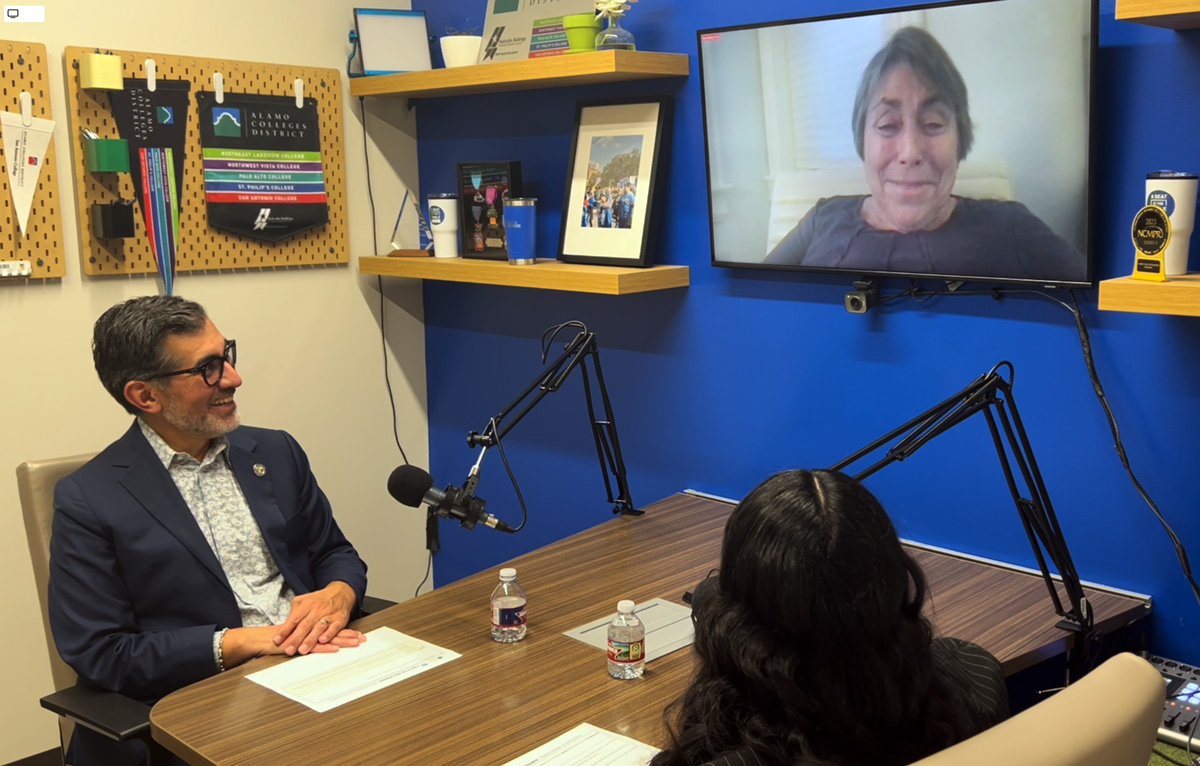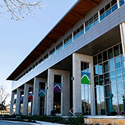Promise Programs: A Conversation with Dr. Martha Kanter


A Seat at the Table with Chancellor Flores: Promise Programs: A Conversation with Dr. Martha Kanter
Dr. Martha Kanter, a leading figure in the national education landscape and Senior Fellow at New York University's Steinhardt Institute for Higher Education Policy, works on spearheading initiatives aimed at improving college access, affordability, and quality in American higher education. With her extensive background as the former U.S. Under Secretary of Education, overseeing federal postsecondary policies and programs, Dr. Kanter brings a wealth of knowledge and experience to the table.
Since 2018, Dr. Kanter has been an integral partner of the Alamo Colleges District, collaborating on the inception and implementation of what is now known as AlamoPROMISE. AlamoPROMISE is now available to graduating high school students across Bexar County.
Dr. Kanter and Keren Morin Lugo, Palo Alto College student and AlamoPROMISE Scholar, recently took part in a A Seat at the Table with Chancellor Dr. Mike Flores to explore the impact of Promise Programs and their pivotal role in shaping the future of education and social mobility.
Some key concepts they covered include:
- National trends in promise programs
- Best practices across promise programs
- The biggest challenges that promise programs face
INTERVIEW HIGHLIGHTS
National trends in promise programs
Dr. Kanter: The growth has been from high school to college even in the last couple of years, not in San Antonio, but in many parts of the country; there has been a slight decline in high school students, and what’s been great about the growth is more students are finding out about promise [programs], and some of the promise programs are including the adult population. So it’s really exciting for us. We’re not in every state. Thirty-three states have taken the statewide promise, and we have 450 promise programs. We want to be up to over 500 in 2024.
Best practices across promise programs
Dr. Kanter: I think what the AlamoPROMISE is doing is right up at the top. In other words, every student is going to have the opportunity in your entire county and what we want is to have promise programs to be available beyond in some programs one high school to one college. We want students to have a range of options and we want to include all of the high school students that we can get in promise. … We really want to focus on the next generation coming up because they will lead this country moving forward. … One of my favorite [promise programs] is not only Tennessee but New Mexico. New Mexico just opened their promise [program] to everyone in the state. They are not just filling in the gap. They are going over and above to have what we call a first dollar program. Students are getting a Pell grant and getting a scholarship. I think what the AlamoPROMISE is doing is right up at the top. In other words, every student is going to have the opportunity in your entire county and what we want is to have promise programs to be available beyond in some programs one high school to one college. We want students to have a range of options and we want to include all of the high school students that we can get in promise. … We really want to focus on the next generation coming up because they will lead this country moving forward. … One of my favorite [promise programs] is not only Tennessee but New Mexico. New Mexico just opened their promise [program] to everyone in the state. They are not just filling in the gap. They are going over and above to have what we call a first dollar program. Students are getting a Pell grant and getting a scholarship.
The biggest challenges that promise programs face
Dr. Kanter: I call it promise pathways. What are the pathways that facilitate students to accelerate and not get stuck in any of the barriers that often get in the way? Money gets in the way, sometimes the needs of family and friends get in the way. A big thing that I study is confidence. Students often do not think they are confident, good enough to go to college, or don’t know anybody. … You’re one of the biggest, most comprehensive, most forward-thinking places. That’s what we want to do, that’s the trend. People learning from each other.
Lugo: Confidence is key in students and I see it all the time in my peers and how they chose not to go to college because they felt like there was not a path for them. I truly believe when the counselors visit the high schools and you see them, their excitement and their encouragement toward students makes students more motivated to do it. That’s just vital for the students, especially first generation college students.
To learn more about our Dr. Bosley and what's happening at Northwest Vista College, visit alamo.edu/nvc.







